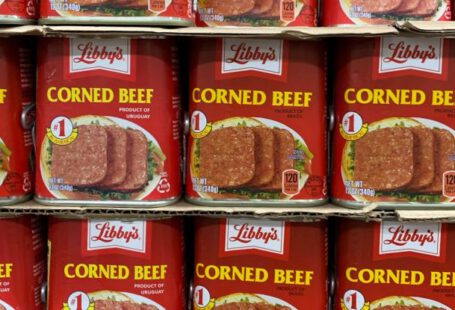Maintaining a healthy weight is a common goal for many individuals looking to improve their overall well-being. While various strategies exist for weight loss, incorporating protein-rich foods into your diet can be particularly beneficial in achieving this objective. Proteins are essential nutrients that play a crucial role in supporting weight loss efforts. In this article, we will explore the importance of protein-rich foods in the context of weight management.
**Protein Supports Satiety**
One of the key benefits of consuming protein-rich foods for weight loss is their ability to promote feelings of fullness and satiety. Proteins are known to be more filling than carbohydrates or fats, which can help reduce overall calorie intake. When you feel full, you are less likely to overeat or indulge in unhealthy snacks, ultimately aiding in weight loss efforts. Including protein in your meals can help you stay satisfied for longer periods, making it easier to stick to a calorie-controlled diet.
**Protein Boosts Metabolism**
Another reason why protein-rich foods are essential for losing weight is their impact on metabolism. Protein has a higher thermic effect compared to carbohydrates and fats, meaning that the body expends more energy digesting and metabolizing protein. This increased metabolic rate can contribute to greater calorie expenditure, even at rest. By consuming protein-rich foods, you can potentially enhance your metabolic rate, making it easier to create a calorie deficit necessary for weight loss.
**Protein Preserves Lean Muscle Mass**
When you are trying to lose weight, it is crucial to focus on losing fat while preserving muscle mass. Adequate protein intake is essential for maintaining lean muscle mass during a calorie deficit. Muscles are metabolically active tissues that contribute to overall energy expenditure. By consuming protein-rich foods, you can support muscle maintenance and prevent muscle loss while promoting fat loss. This is particularly important for achieving a toned and lean physique.
**Protein Aids in Weight Management**
Incorporating protein-rich foods into your diet can also help with long-term weight management. Research suggests that a higher protein intake is associated with improved weight maintenance after weight loss. Protein helps regulate appetite, control cravings, and stabilize blood sugar levels, all of which are essential for sustaining weight loss progress over time. By making protein a staple in your meals, you can establish healthier eating habits that support weight management in the long run.
**Protein Sources and Recommendations**
To reap the benefits of protein for weight loss, it is essential to include a variety of protein sources in your diet. Good sources of protein include lean meats, poultry, fish, eggs, dairy products, legumes, nuts, and seeds. Aim to incorporate protein into each meal and snack to support satiety and muscle maintenance. The recommended daily protein intake varies depending on factors such as age, gender, activity level, and weight goals. Consulting with a healthcare provider or a registered dietitian can help you determine the appropriate amount of protein for your individual needs.
**Incorporating Protein into Your Diet**
To optimize weight loss efforts, consider planning your meals around protein-rich foods. Start your day with a breakfast that includes protein, such as eggs, Greek yogurt, or a protein smoothie. For lunch and dinner, prioritize lean protein sources like grilled chicken, fish, tofu, or lentils. Snack on protein-rich options such as nuts, seeds, or cottage cheese to keep hunger at bay between meals. By making protein a focal point of your meals, you can support your weight loss journey effectively.
**The Bottom Line**
In conclusion, protein-rich foods play a vital role in weight loss and weight management. By promoting satiety, boosting metabolism, preserving lean muscle mass, and aiding in long-term weight control, protein can be a valuable asset in achieving your weight loss goals. Including a variety of protein sources in your diet and prioritizing protein-rich meals can help you stay on track and make sustainable progress towards a healthier weight. Remember to combine protein intake with regular physical activity and a balanced diet for optimal results in your weight loss journey.





